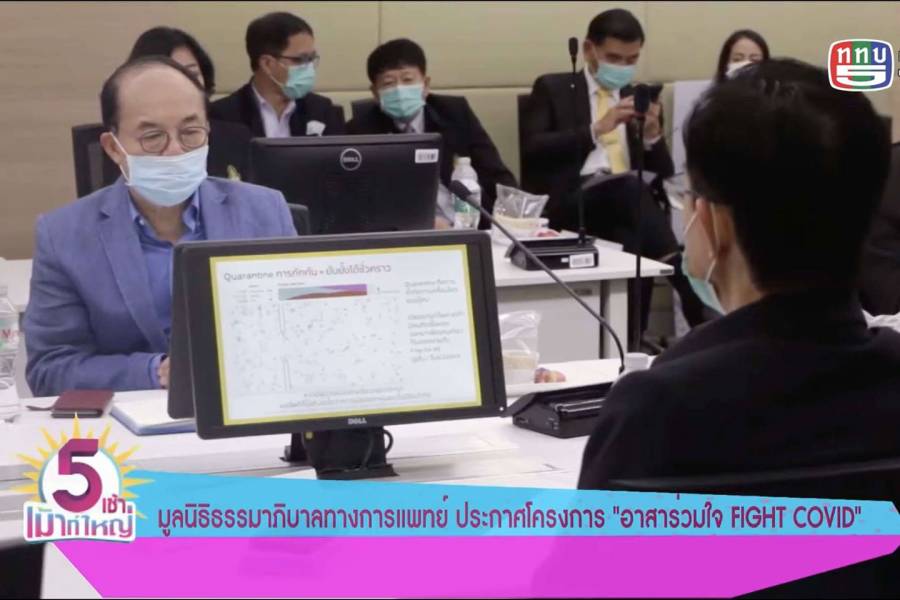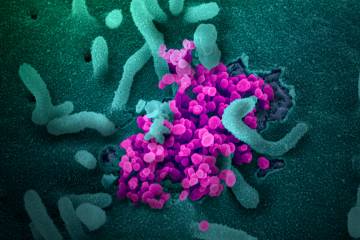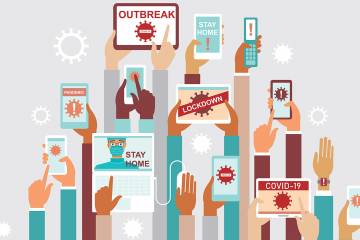When Johns Hopkins junior Jessie Kanacharoen put together a slideshow presentation about the importance of social distancing to slow the spread of COVID-19, she hoped the project might convince her parents and sister to stay home more often. What she didn't expect was that her YouTube video would soon be shared throughout her home country of Thailand and become a centerpiece to the Thai government's response to the disease.
In just seven minutes, "The Real Deal on Covid-19" explains, in simple language, many of the most pressing questions people have about the ongoing coronavirus outbreak, including what the pandemic designation means, how the disease is transmitted, what its symptoms are, how it affects the elderly and immunocompromised, what it means to be an asymptomatic carrier, and the effectiveness of social distancing techniques at slowing the spread.
As an international student, Kanacharoen is one of the few remaining on the Homewood campus. After Hopkins announced its transition to remote learning on March 10, she gave her parents a call to tell them the news and check in on the family. In talking with them, she found that there was a lot of misinformation at home, and she wasn't sure how best to combat it.
"I was kind of frustrated, so I went on social media and I looked at the information my friends at Hopkins were sharing, then compared it to the info my friends from back home were sharing," said Kanacharoen, a pre-med molecular and cellular biology major. "There was a huge disparity. The information here was mostly factual and science-based, and the information people were sharing back home was either straight-up fake news about the virus or based in superstition."
Kanacharoen said she noticed that much of the most accurate information about COVID-19 in the early stages of the global spread was not available in Thai. To help her family prepare for the impacts of the disease, she began translating the information and pairing it with short animations and graphics.
With information sourced from the World Health Organization, the Johns Hopkins Center for Systems and Engineering, and The New York Times, the video quickly and simply summarizes what people need to know about the virus. The video is narrated in English but features Thai captions written for each slide to make it more accessible.
"It's difficult to visualize how one person can make a massive difference by staying at home," Kanacharoen said. "So I wanted to help give people context they could understand."
After sharing with her parents and grandparents, Kanacharoen said she went back to her classes and forgot about the video. But while she was studying in Baltimore, at home her video was spreading through group chats and social media across the country, amassing thousands of views.
Soon, it was viewed by members of the Thai Medical Society who shared the video on their social channels and began using it in training for their COVID-19 response teams.
Kanacharoen, who only became aware of its popularity after friends in Thailand began sharing it—not knowing she was the creator—said it was surreal to see something she had created having such a large impact at home.
The video aired twice on Thailand's Workpoint TV, and it was translated into different dialects to be distributed to rural areas. Because the concepts are broken down into simple terms and concepts, Kanacharoen said officials have found the video useful for sharing with less-educated viewers.
"I'm very grateful that a lot of people found the information useful, but the media attention isn't that important to me, " Kanacharoen said. "What's important is that now I know that someone must have watched this video and thought 'Maybe I should stay at home,' and in that way, I have made some sort of difference."
Posted in Health
Tagged coronavirus










